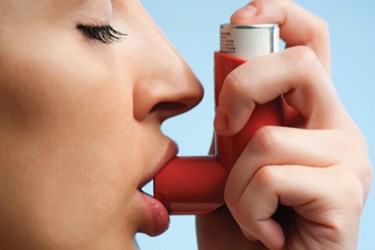Teva Reports Two Successful Phase III Studies For Reslizumab In Asthma
By Cyndi Root

Teva Pharmaceutical Industries announced in a press release that two Phase III trials for reslizumab have met their primary endpoints. The anti-IL-5 monoclonal antibody lowered the frequency of clinical asthma exacerbations (CAE) by 50 to 60 percent compared to a placebo in patients with inadequately controlled moderate to severe asthma and elevated levels of blood eosinophils. The positive study results and a full analysis of the data will lead to regulatory filings in the U.S. in 2015.
Dr. Michael Hayden, President of Global R&D and CSO at Teva, said, "These pivotal Phase III study results are striking. The success of these studies gives us confidence that we may have a valuable potential new treatment option for asthma patients, with elevated levels of blood eosinophils, who are at risk of exacerbation.”
Reslizumab
Reslizumab is a humanized monoclonal antibody (mAb) that acts against interleukin-5 (IL-5), which plays a role in the lifecycle and movement of eosinophils. Increased levels of the inflammatory white blood cells are implicated in many allergic diseases and correlate with asthma exacerbations. Blocking IL-5 activity, as shown in these two Phase III trials, reduces asthma exacerbations. Teva states that the agent’s success in the asthma indication may open the door for additional indications for conditions with elevated eosinophils.
Reslizumab Trials
Both Reslizumab trials showed significant reductions in asthma exacerbations, a 50 percent reduction in one trial and a 60 percent reduction in the second trial. Additionally, the agent increased lung function in asthma patients, the details of which the company plans to share at the European Respiratory Society Congress in September 2014. The adverse events reported were comparable to the placebo and included headache and respiratory tract infections.
Asthma Market
Teva’s success in its recent trials is important for the company as the asthma treatment market is expected to grow to $23 billion by 2023, according to a new report from GlobalData. The increase from $15.9 billion in 2013 is forecast for the U.S., the U.K., France, Germany, Spain, Italy, Japan, and Australia. Valentina Gburcik, Ph.D., Senior Analyst for GlobalData, said, “While the market share of fixed-dose combinations of inhaled corticosteroids and long-acting beta-agonists (ICS/LABAs) will shrink from almost half to 23 pecent, targeted biologics will enter the market and start dominating the asthma space, accounting for 32 percent of total sales in 2023 from just 8.7 percent in 2013.” She also said that new patented products, lower-priced drugs, and those with more convenient dosing will see increased sales.
